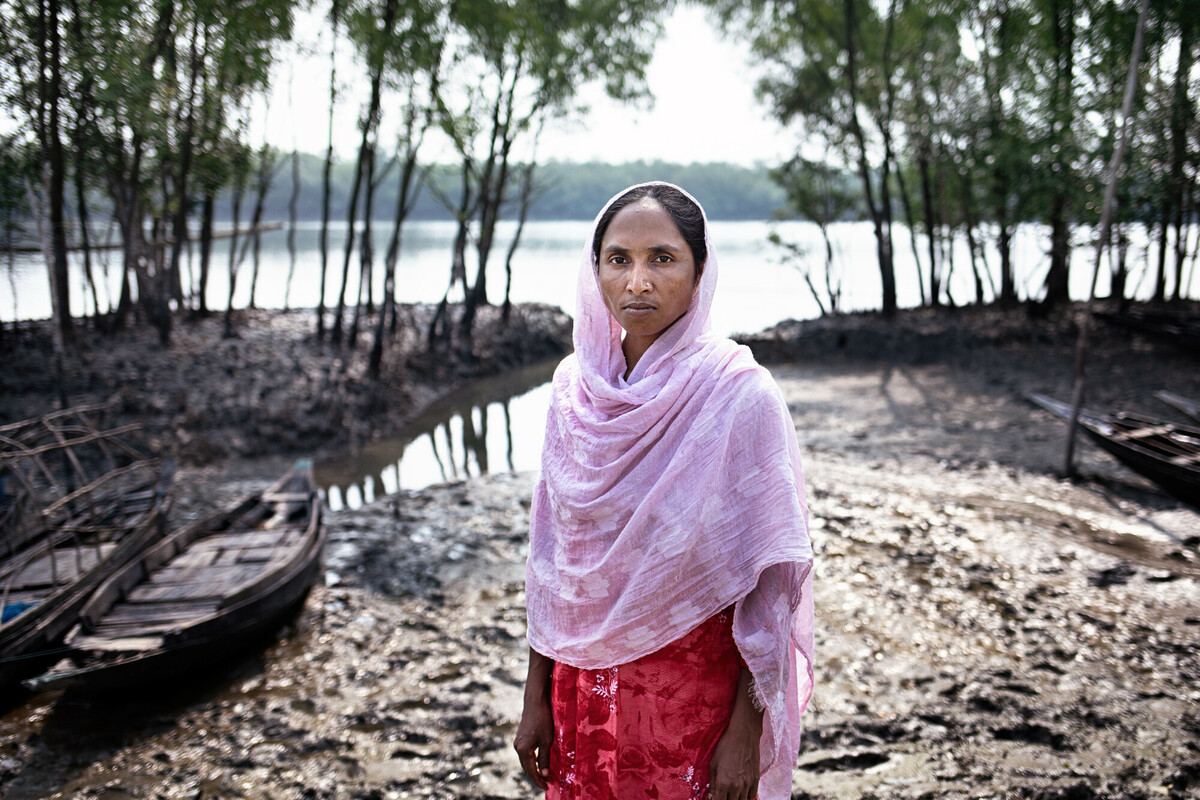
What we need is women-led climate justice.
I dream about the Sundarbans, this is my everything.
Selena Parvin is a community health worker who lives with her son and elderly mother in Bangladesh near the Sundarbans, one of the world’s largest mangrove forests and home to Bengal Tigers, crocodiles, dolphins and more than 250 species of birds. Selena calls the Sundarbans “my everything.”
“By collecting honey, cutting wood or by catching fish, we are making our living. We are born in this place and this is my pride,” Selena says.
“But now we are experiencing change. In my childhood, there was flood only once. Now for 12 months, there’s flooding and nature has changed drastically. Our land is no longer good for cultivation. We are always suffering for drinking water.”

We can’t tackle the climate crisis without tackling gender equity. We need climate justice—solutions that address the underlying equities and barriers that cause women and girls to be affected disproportionately harder when climate disasters strike.
Investment in sexual and reproductive health and rights and gender equality is critical, so that women and girls, young people, communities and health systems will have climate resiliency. And women should be key players in solving the crisis, through holistic approaches that will improve education, build women’s economic security, and amplify the voices and ideas of women and young people.
We need to support each other to live and survive here.

The frequent cyclones and floods in Bangladesh are especially difficult for women with young children, Selena says. “We are living in danger all the time. Women have no help. Pregnant women, elderly women and children are vulnerable when a flood hits. Children of our area like to play outside. But due to flood water, we have to be alert. Many children have died because of drowning during flooding.”
“During the time of the Bulbul cyclone, I helped get our roads reconstructed by working with other members of my community. People of my community love me and support me. Because of everyone’s inspiration, I have received training about disasters,” she says. “We always discuss with each other why the weather is changing. We need to support each other to live and survive here.”
Resiliency
Like Bangladesh, Mozambique has been hit hard by climate change.
Solving a huge crisis like the climate change affecting Mozambique can seem overwhelming, but women like Regina Charumar, who lives in Maputo in Mozambique, see the possibility of generating great change for the better.
A person can, in that small circle, in their small space, generate big changes,” Regina says. “I always say it, again and again, it is the small attitudes, the small steps that seem so tiny, so isolated, that generate such big changes—so big that they impact the world positively.”
In Bangladesh, Nur Banu is showing the kind of resilience needed for creating positive change. During Cyclone Amphan, Nur’s daughter Ema was born. Their house was destroyed, and Nur had to give birth outside, “under the open sky.”
“We are living here for generations. We do not want to leave this place. We want a good environment.”




